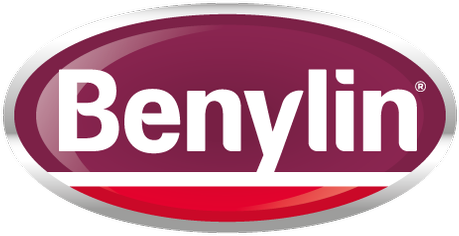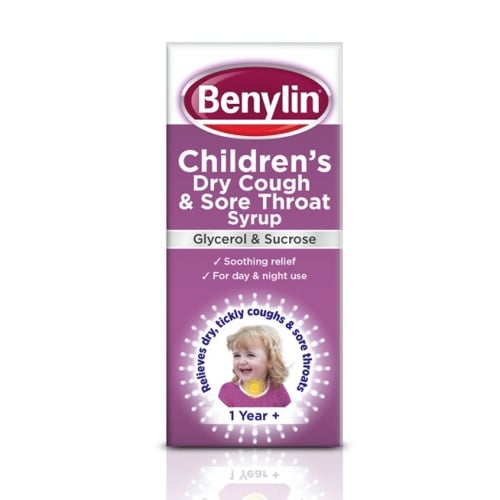BENYLIN® Children’s Dry Cough & Sore Throat Syrup
What it does:
Coughing starts when parts of your child’s breathing passages become inflamed or irritated.
The Glycerol and sugar mixture in the BENYLIN® Children’s Dry Cough and Sore Throat Syrup help soothe inflamed areas of your little one’s throat.
How it works:
The syrup is non-drowsy with a blackcurrant flavour. Soothes dry and tickly coughs for children aged 1 year and over.
What is a cough?
Coughing starts when part of your breathing passage becomes inflamed or irritated.
The cough is simply a reflex to try and remove the irritant and clear the airway.
Coughs can either be productive (producing excess mucus or phlegm) or unproductive (producing no mucus or phlegm).
Chesty and mucus coughs are productive, whereas dry and tickly coughs are unproductive
Can't find BENYLIN® Children’s Dry Cough and Sore Throat Syrup?
If your local pharmacy doesn't stock BENYLIN® Children’s Dry Cough and Sore Throat Syrup, please ask them to order via its unique PIP code:
125ml: 388-5910
Where to buy
Product Details
For oral use only.
Do not use more than the stated dose shown.
Children 1-5 years: Children 5 years and over and adults (including the elderly): Give two 5 ml spoonfuls.
Give 3-4 times within 24 hours, as required. If symptoms persist for more than 3 days, talk to your doctor or pharmacist.
Not suitable for children under 1 year
If you forget a dose, give the next dose when needed. Do not give a double dose.
Contains 0.57ml of Glycerol and 1.7g of Sucrose per 5ml. Contains Citric acid monohydrate, Sodium benzoate (E211), Anthocyanin, Blackcurrant Flavour 1740.7107 IFF containing benzyl alcohol and propylene glycol (E1520), Blackcurrant Juice 1740.1436 IFF containing benzyl alcohol and propylene glycol (E1520), Liquid Glucose, Purified Water.
To view the patient information leaflet please click here.




